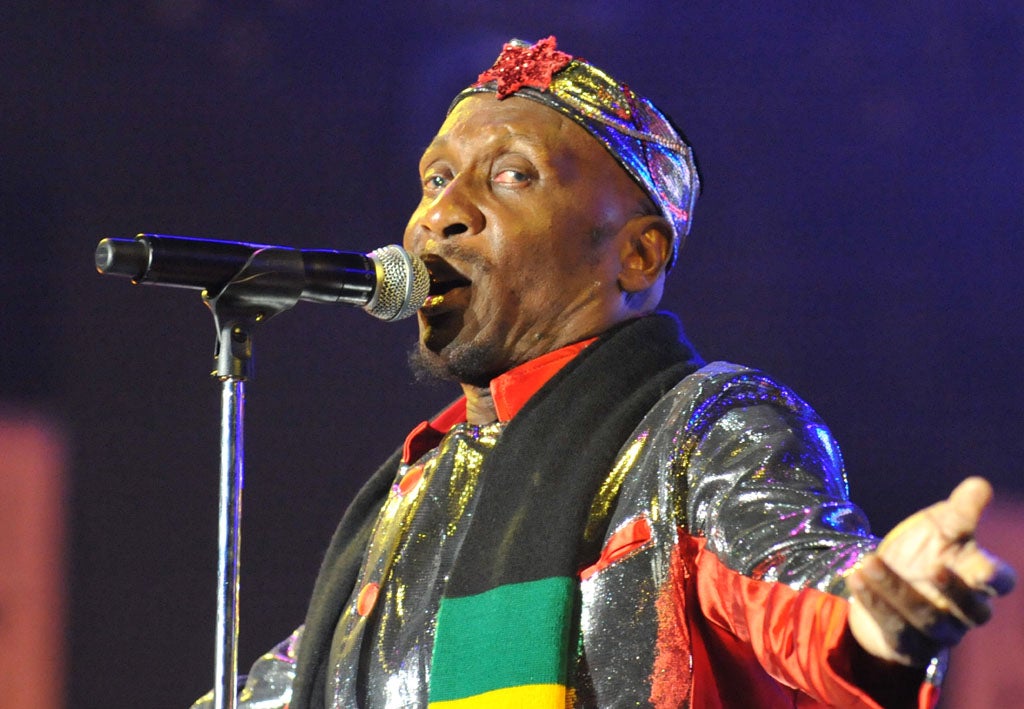Jamaica 50: Jimmy Cliff, Indig02, London

The weekend before this last of 12 gigs at this venue celebrating Jamaica’s 1962 independence, Usain Bolt leads the tiny nation’s dominance of the Olympics’ most iconic event, and West Indies manage a rare Test match win in Kingston.
But nothing beats Jamaica’s musical greatness, even more wildly disproportionate than Britain’s. And no one did more to give reggae its global foothold than Jimmy Cliff and the 1972 film he starred in and helped soundtrack, The Harder They Come .
Before Cliff, Max Romeo, gaunt in mustard-yellow garb with grey dreadlocks, heavily mines his 1976 album War Ina Babylon. If Britain is Babylon, it seems different tonight from the place of tense racist suffering the title song was felt to describe in the 1970s, among a good-humoured, multi-racial crowd long the British reggae norm. Romeo’s 1972 single “We Love Jamaica” is appropriately patriotic, though his country might not always have been so comfortable being celebrated by this Rastafarian radical.
Jimmy Cliff is, like Romeo, 64, but remains full of high-stepping energy and unfulfilled pop ambition when he arrives after midnight. He wears a small crown and a gold-patched disco quilt on one trouser leg, and sweat soon pours down the back of his bald head. “You Can Get It If You Really Want” sums up the striving, positive philosophy of a singing star born dirt-poor in a colonised nation. “Children’s Bread”, from his new album Rebirth , speaks out for the hard lives of still oppressed people. “Miss Jamaica” was a hit in the nation’s independence year when Cliff was only 14, reminding you that he’s a conduit for its whole musical history.
One reason Cliff missed the huge stardom of his contemporary Bob Marley, though, is his attraction to other styles. “Wide World” is a rock power ballad tonight. “Many Rivers to Cross” has lost some of the pure prayerfulness with which he used to sing it as, still pining for stadium success, he focuses on vocal power.
But the white cliffs of Dover he longs to cross in its lyrics, the border of a promised land or prison, remain poignant. “Bongo Man”, stretched to include redemption songs such as “Rivers of Babylon”, finds a deeper, pre-reggae spirit in its massed drums and chants. Though otherwise a little coarsened from his absolute best, Cliff is a great king for Jamaica’s jubilee.
Join our commenting forum
Join thought-provoking conversations, follow other Independent readers and see their replies
Comments
Bookmark popover
Removed from bookmarks